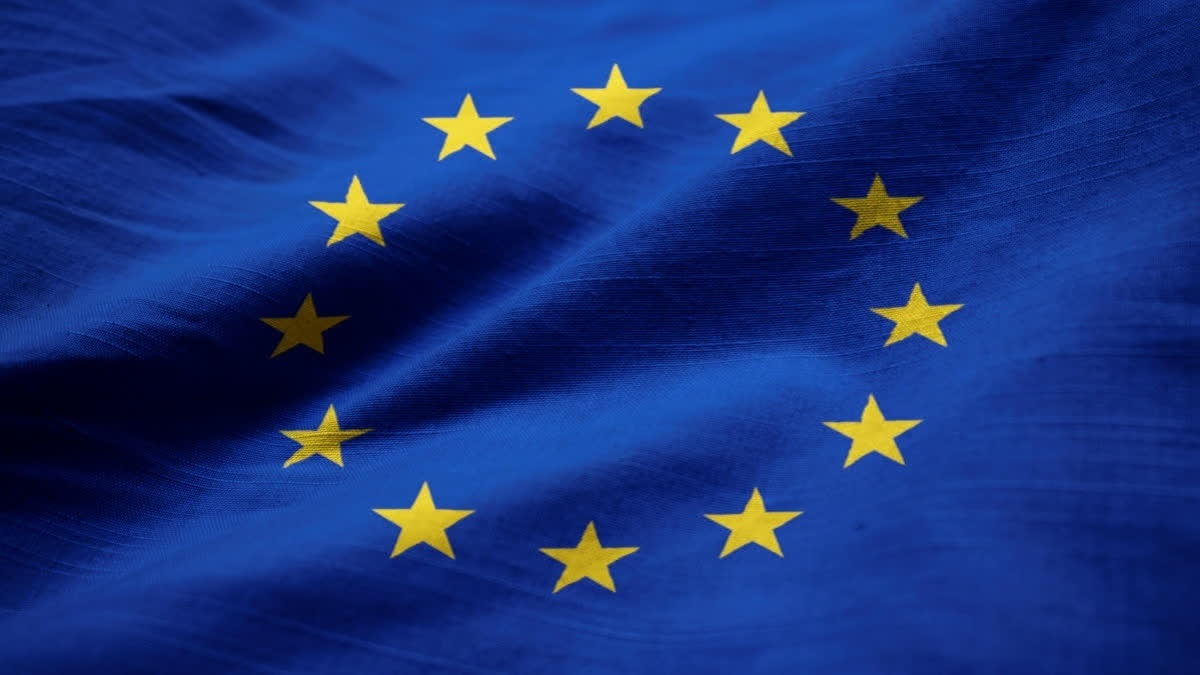New Delhi: The European Union has provided India with inputs on alleged involvement of certain Indian entities in supplying "high priority" goods with possible military application to Russia in violation of Western sanctions, people familiar with the development said. EU Sanctions Envoy David O Sullivan said he visited India in October to discuss with Indian authorities "systemic solutions" to stop the "illicit flow" of the common high priority items to Russia.
There was no immediate comment from the Indian side on the matter. India has been maintaining that as a matter of policy, it does not accept unilateral sanctions and only recognises those imposed by the UN. "I travelled to India in October 2024 for the second time to discuss with Indian authorities systemic solutions to stop the illicit flow of common high priority items to Russia," Sullivan said in response to a query.
It is learnt that he provided certain details to the Indian authorities about the Indian firms supplying products to Russia circumventing the sanctions imposed by G7 and EU sanctions on Moscow. The alleged violations by the Indian entities have come to light after Washington imposed sanctions on 19 private firms from India for their alleged role in providing "dual-use" technologies to Russia.
EU sources said two entities based in India are subject to "specific export restrictions". It is understood that India has sought more information from the EU on the matter. "Several third countries I visited have put in place specific mechanisms to solve this issue. Russia's brutal and illegal invasion of Ukraine is existential for the EU," Sullivan said.
"We will continue to disrupt the activities of the Russian military industrial complex by shutting down illicit procurement networks on a constant basis," he said. Two entities from India Si2 Microsystems Pvt Ltd and Innovio Ventures are already subject to the EU's specific export restrictions, according to the sources.
The EU sanctions envoy said his job is to make it "harder, slower and more expensive for Russia to access our technology." "Data at our disposal shows that we are succeeding. We estimate that Russia is paying about 130 per cent more for semiconductors and 300 per cent more for second-hand machine tools after we imposed sanctions," he added.
The EU will continue to work with Indian authorities to find a systemic solution to stop sanctions circumvention of common high priority goods to Russia, the EU sources said.
"The EU is currently negotiating its 15th package of sanctions against Russia. This package will consist in listings of vessels part of the shadow fleet and entities that have been supplying 'battlefield items' to Russia," said an EU source. "These items are used to make Russian military equipment more precise and therefore more lethal," it said.
"The EU already listed hundreds of entities part of the Russian military industrial complex as well as actors based in third countries that have been actively undermining the EU sanctions framework," it said.
After the US sanctioned the Indian companies in October for supplying various components to Russia, the Ministry of External Affairs (MEA) said none of them had violated domestic laws and that India has a robust legal and regulatory framework on strategic trade and non-proliferation controls.
India is a member of three key multilateral non-proliferation export control regimes -- The Wassenaar Arrangement, the Australia Group and the Missile Technology Control Regime; and has been effectively implementing relevant UNSC Resolution-1540 on non-proliferation, MEA spokesperson Randhir Jaiswal said.
"Regular strategic trade export control outreach events for Indian industries and stakeholders are being carried out by agencies of the government of India," he said.



